Six-Lined Racerunner
Aspidoscelis sexlineata
Status: Secure
The Six-lined Racerunner has a dark overall body with six yellow, white, gray or pale blue stripes on its back. Younger racerunners often have a light blue tail. These lizards are known for their fast speed when escaping from predators by quickly hiding in the vegetation, under rocks, or burrowing.
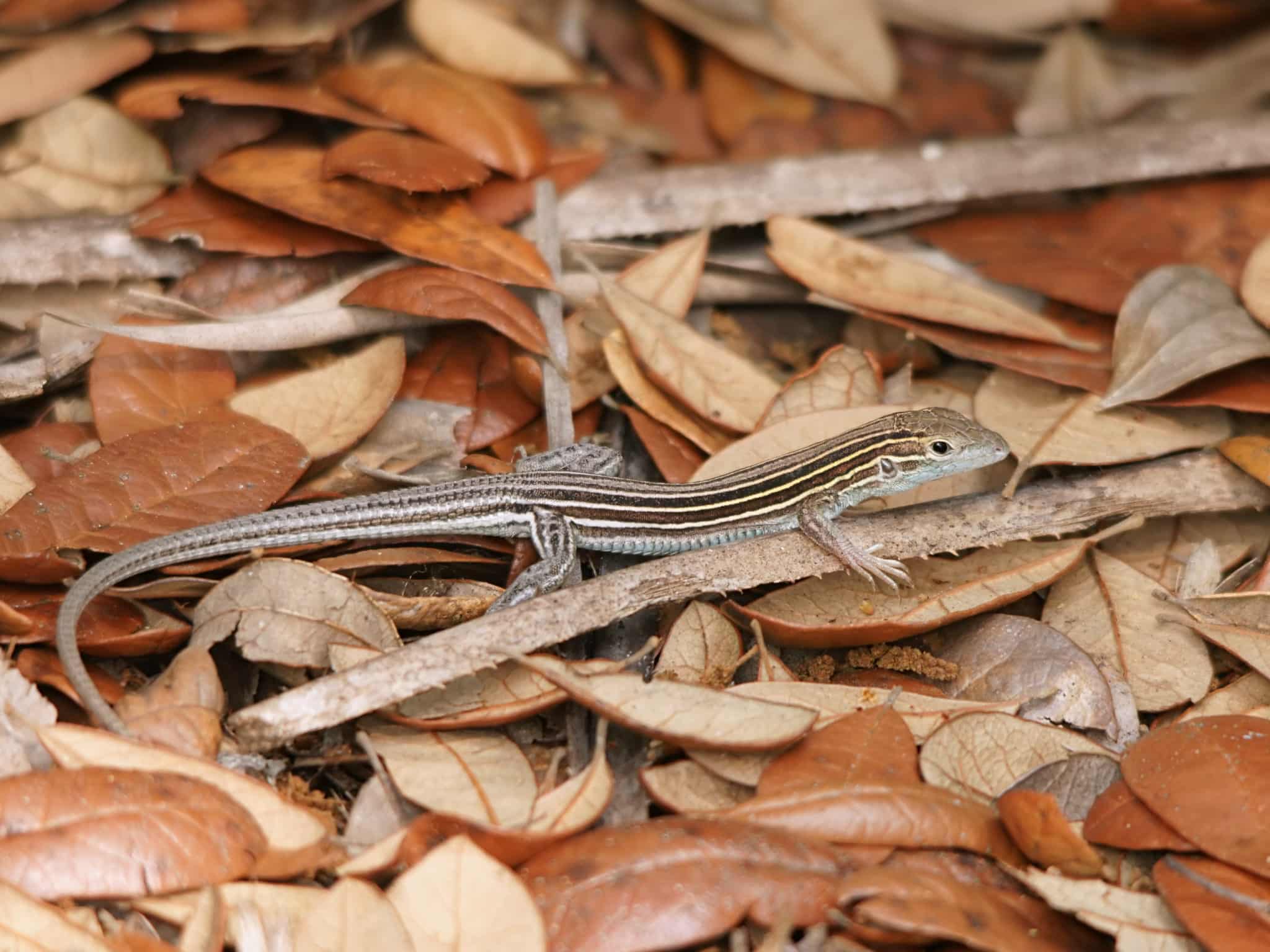
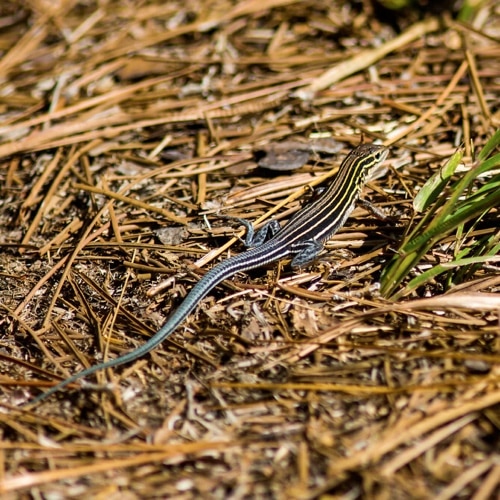
Habitat & Range
The six-lined racerunner enjoys hot dry areas. Often they are seen in open fields, woodland edges, savannas, and places with loose soil to make burrowing easier. These lizards stay on the ground most of the time and rarely climb trees. They have a wide distribution over the southeastern and central states like North Carolina, Illinois, Maryland, and Texas.
Food Web & Energy Flow
Six-lined racerunners are carnivores that mostly eat beetles, spiders, grasshoppers, and ants. These lizards usually feed on what’s available to them in their habitat.
Relationship to Fire
Since most of the six-lined racerunners' food they consume depend on a healthy forest floor, frequent fires are important to them. The fires can help clear space on the forest floor which can provide more sunlight to the plants and more nutrients to the soil.
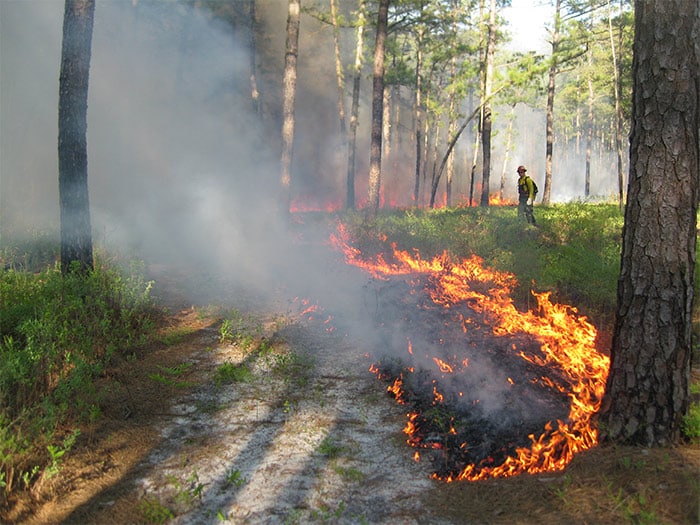
Conservation Status
Six-lined racerunners are considered Secure and are found in abundance in different areas across North America. Although there are no major direct threats to the species, some minor human disturbance to their habitat has caused some of the racerunners to move to other areas.
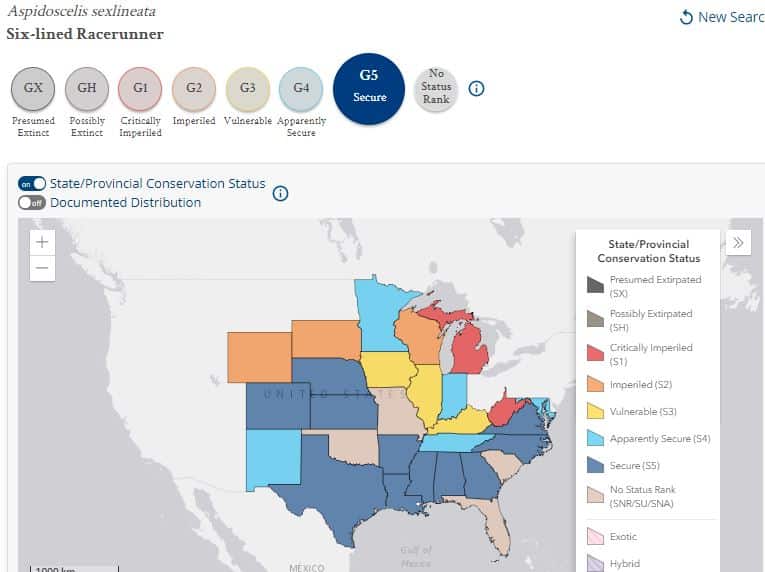
Human Impacts/ Threats
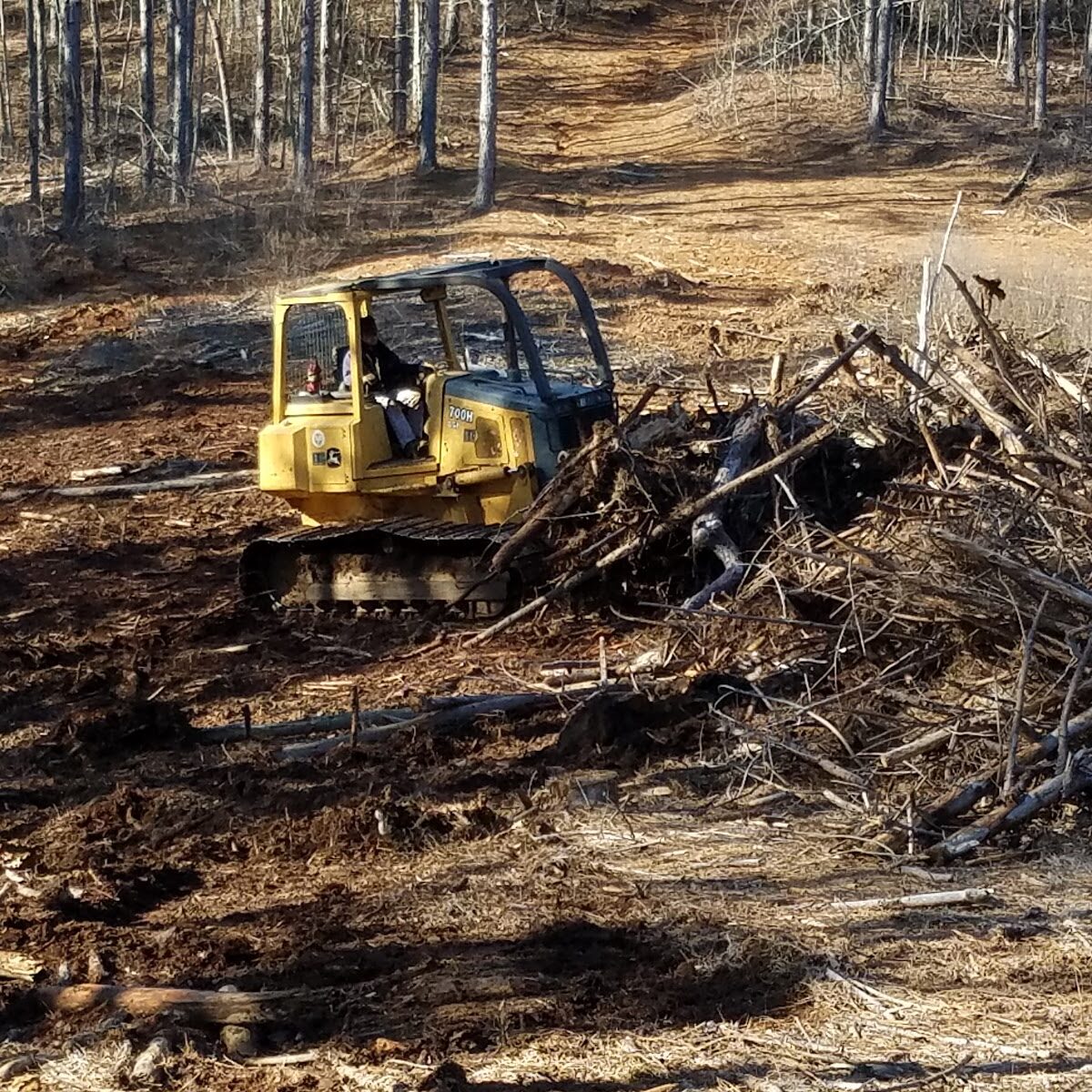
Land Use Conversion
Longleaf forests and the habitat it supports is being cleared or converted to use the land for other uses like houses, roads, agriculture, and even to grow different types of trees to sell.

Fire Suppression
Many people think of fires in the forest as bad, so they work hard to prevent or suppress them. But longleaf forests NEED regular fire to support habitat for the species that live there!
Resources
Savannah River Ecology Laboratory. Herpetology Program
Amphibians & Reptiles of North Carolina. Six-lined Racerunner
Animal Diversity Web. Six-Lined Racerunner
Department of Natural Resources. All About Racerunners
